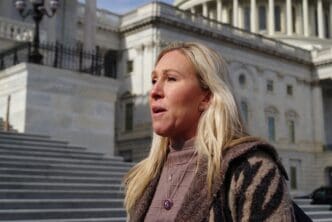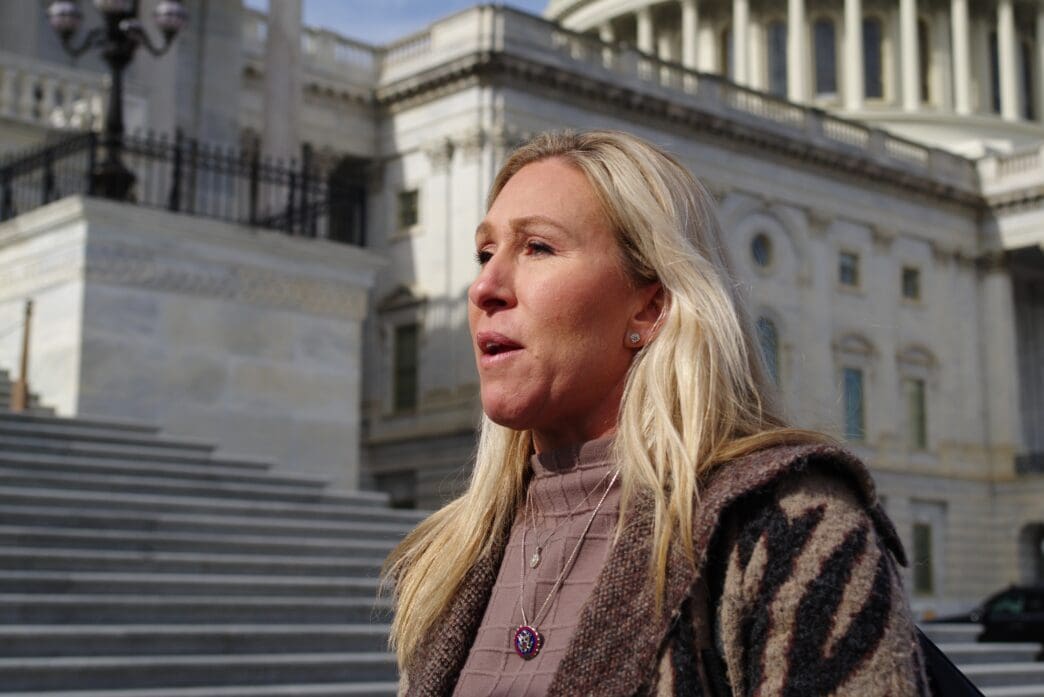Executive Summary
The Story So Far
Why This Matters
Who Thinks What?
Representative Marjorie Taylor Greene publicly apologized for her role in “toxic politics” on Sunday, marking a significant and public break from President Donald Trump and his characteristic rhetoric. The Georgia lawmaker’s comments, made during an interview on CNN’s “State of the Union,” followed her support for a House push to release investigative files related to convicted sex offender Jeffrey Epstein, a move Trump initially resisted before reversing his stance.
Greene’s Apology and Safety Concerns
Greene stated, “I would like to say, humbly, I’m sorry for taking part in the toxic politics; it’s very bad for our country.” She attributed her reflection to the September assassination of conservative figure Charlie Kirk and expressed fears for her own safety. On X, Greene later claimed that Trump’s “unwarranted and vicious attacks” against her acted as a “dog whistle” to dangerous radicals, leading to multiple threats.
Trump, however, dismissed her concerns, telling reporters that he didn’t believe her life was in danger and that “nobody cares about her.” He referred to Greene as “Marjorie ‘Traitor’ Greene.”
The Epstein Files and Political Shift
The intensifying rift between Trump and Greene, a staunch supporter during his 2024 campaign, was exacerbated by her decision to back efforts in the House to make the Jeffrey Epstein investigative files public. Trump had initially “furiously resisted” this move but later reversed his position on Sunday evening, stating on Truth Social that “we have nothing to hide, and it’s time to move on from this Democrat Hoax.”
Greene’s apology and shift in approach are notable given her past. Elected in 2020, she was known for promoting conspiracy theories, including those related to school shootings and the QAnon movement. She also engaged in heated confrontations with colleagues and suggested a “national divorce” between red and blue states.
Broader Critiques and “America First”
Beyond the Epstein files, Greene has also voiced concerns about rising living costs and criticized her party for not doing enough to address the increasing expense of health insurance. In another significant departure from Trump, she has argued that he is not upholding the “America First” principles of the movement he created, citing his foreign tours and meetings with international leaders.
Greene’s political evolution has prompted questions about her motivations. While her explanation of reconsidering her behavior after Kirk’s assassination has been perceived as genuine, and her concerns about the cost of living ring true, some speculate about shrewd political maneuvering at a time when Trump’s popularity is fluctuating.
Implications for the GOP
Greene’s willingness to distance herself from Trump poses a challenge to the cohesion of the Republican Party in the House, especially given its fragile majority. Her independent power base, bolstered by her high visibility, grants her significant influence, as demonstrated by her role in forcing a vote on the Epstein files.
Critics, including Trump, have suggested that Greene’s actions are driven by thwarted ambition, alleging she desired higher office. Greene, however, denied these claims, stating she prefers to remain in the House and has no interest in a Senate run or governorship.
While Greene maintains support for Trump’s administration and campaign promises, her new, less confrontational public persona has led to speculation about whether a more civil dialogue is possible within conservative politics. The durability of this shift remains to be seen, with some cynics predicting a temporary fracture with Trump, who is known for his history of feuds and reconciliations.
A Shifting Landscape
Greene’s most radical criticism — that Trump is no longer embodying “America First” values — implicitly suggests the movement is distinct from the president himself, a notion Trump disputes. This rupture, however, is the latest indication that some Republicans are beginning to assess Trump’s long-term influence and how their association with him might affect their political fortunes once his presidency concludes.
Figures like Representative Thomas Massie have cautioned colleagues about how votes on issues like the Epstein files will be remembered. Despite Trump being in the first year of his second term and most Republicans still hesitant to defy him, growing signs suggest some in the party are starting to contemplate a political future beyond his immediate control, particularly amid some of the lowest approval ratings of his presidency.








